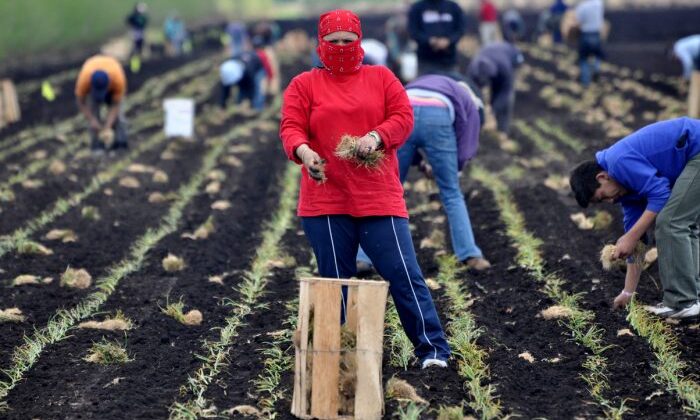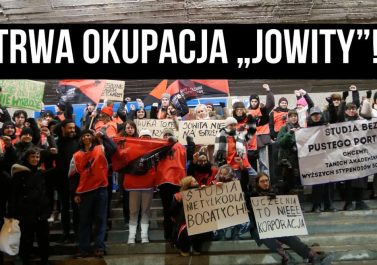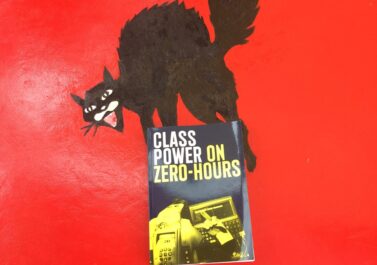The physical and armed attacks on the protests following George Floyd’s murder, both by right wing groups and state forces in the USA make it essential to discuss concretely what we mean by revolutionary change and the communist program. This becomes even more urgent given the rising class tensions generated by the presidential elections. Regardless of the election outcome it is almost certain there will be an increase in violent physical attacks on sections of the working class. Everything possible must be done to defend people from these attacks. The maximum possible unity of the working class in the face of both the right wing militias and the state forces must be sought. But the idea, held by some, that this growing ‘war’ on the streets can somehow lead to revolutionary change is a dangerous fantasy.
It’s only necessary to look at recent history in Syria to understand just how dangerous such an outlook is. There was a mass mobilisation of the working class against the corruption of the elite, against the lack of democracy, against poverty and unemployment. However, when those protests came under armed attack by the state’s thugs the protest movement was not prepared, organisationally or politically, to control the armed fight back. The people who were ready to exploit the gun battles were gangster’s, sectarian groups, foreign states and above all, the Syrian state itself. In these circumstances all avenues for the working class to pursue its own discussions, its own initiatives were shut down. The man with the gun now ruled and the gun was not in the hands of the working class movement precisely because no revolutionary working class movement yet existed and such a movement cannot be built overnight. Hundreds of thousands of dead and displaced working class people and the stabilisation of capital’s dominance were the only outcome.
Now in the USA the benefits to the ruling class from stoking their ‘culture wars’ are all too clear. At this point the two main tendencies on the political left have left us in dead-ends. The electoral road of democratic socialism has failed at the first hurdle. ‘Insurrectionism’ leads us into a suicidal attack against the repressive arm of the state by ignoring the productive power of the working class. And so, in these exciting yet dangerous times, how and in what ways do revolutionaries orient ourselves?
In terms of the current moment, we are at the peak of the objective unification of our class through global supply-chains, means of communication and migration. Capital’s crisis and the attempts of the ruling class to manage it increasingly lead to a process of disintegration of this objective unification. Yet in the midst of this historical social crisis, the working class around the world is going into its battles without a utopia, without a program. To comrades who will be quick to remark that, ‘the program emerges out of the movement, not the other way around’, we respond by saying that we are at the point in time when steps towards a program and a pragmatic vision of revolutionary rupture, itself become a necessary propelling force for the movements of our class. The alternative easily turns into the nihilistic violence seen in Syria or to a paralysing despair.
The program
At this point we need to relate a pragmatic program to take over the means of production with the actual working class struggles. In the political confrontation with reactionary tendencies within the working class we have to make clear that only this collective step by workers is a radical break with ‘the elite’.
The question of a program is simple. During the Covid crisis the working class has seen that essential work in the form of agriculture, the energy, communication and transport sector, the manufacturing of useful goods and the care and health work makes up 30% of current social activity, which includes the intellectual labour in research units and labs. Much of the rest is useless, harmful, parasitic or purely market-related activity. We have seen that this relatively small section of the working class was able to keep us alive and we base our program on this fact. The take-over and defence of the means of production and the re-employment of everyone within the essential sector could allow an immediate reduction of the working day to three hours per day per person. We can also see that the general skill level of the working class in combination with modern means of communication can take over the productive function of the state and the market/money-relation: issues that concern whole regions can be discussed and decided upon by grass roots structures; resources and consumer goods can be allocated rationally without having to be ‘doubled up’ in the form of a monetary equivalent.
This is not communism. The radical reduction of working time is a necessary precondition to develop the social capacity to tackle the big social problems: how to transform the organisations of struggle (strike and neighbourhood assemblies, liberated zones etc.) into organisations of social decision-making; how to change the harmful way we produce our lives; how to undo the strict division between intellectual and manual labour; how to end the devastating separation of town and countryside and global unevenness of development. This is a necessary transition period that used to be described as the ‘dictatorship of the proletariat’, but we might prefer to call it differently today. It is the enforcement of the general obligation to engage in socially necessary work so that we can all work less. The core working class will have to enforce this against the socially atomised gang members, against the lefty commentariat and NGO poverty pimps, against the small shop-owners, and of course against the bankers, lawyers and law-makers.
The class subject
There is no class program without a class subject. There are three main segments of the working class who, due to their social position, will have to be the main driving force in a revolutionary transition. During recent months these segments have not only confirmed their objective significance as those who work in order to keep us all alive, but they’ve showed their subjective potentials by stepping forward in struggle. Here we talk about the so-called ‘tech workers’ (intellectual/engineering workers), who embody necessary productive knowledge; the essential ‘mass workers’, who embody both productive power; and the ‘marginalised working class’, who prove that they can turn desperation into collective emancipatory violence. The recent struggles of these three segments show their capacity and limitations:
We saw Google and Amazon programmers going on strike largely for ‘political’ reasons: against the impact of their companies on the climate; against the military use of their software products; against the treatment of manual workers in the companies’ warehouses. We saw doctors coming forward and speaking out against the government’s Covid-19 regime. However, as long as these intellectual workers remain isolated from the reality and struggles of manual workers they will remain in their philanthropic bubble and produce only abstract ‘technological fixes’ for deeper social problems.
During the Covid crisis we saw 400 strikes in the US alone, primarily of manual mass workers of the essential industries. We don’t know much about them in detail, but they demonstrated the flip-side of the immediate experience of collective power in bigger and essential workplaces: the tendency towards self-management and sectorial isolation. Without deeper connections to the general intellect of the ‘tech workers’, and without the pressure of marginalised workers who demand the socialisation of productive capacities, this segment of the working class tends to end up in sectorial self-confinement. The trade unions will function to broker sectoral ‘bail out’ deals with the state that tries to separate the productive backbone of society from the more marginalised and precarious proletarian fringes.
The uprising after the murder of George Floyd was carried by a mass of working class people who didn’t act as a collective workforce. A mixture of students, informal workers, precariously employed and socially atomised segments of the class. We found a similar composition during the Arab Spring or the square occupations after the 2008 crisis. We see a readiness to confront the state and inventiveness in the streets. We see that this segment is fragmented in class terms: the professional elements tend to promote themselves as speakers, the marginalised workers depend on the middle-class infrastructure (churches, mosques, NGOs) for survival. Without the productive power of the essential workers the violence turns in on itself. It will be a hard political struggle to unite this segment around a communist program.
We can see the mutual dependence of these segments in terms of being able to carry through a revolutionary transition. We can see that they form not more than 30 to 40% of the working population. We can also see that these three segments are mirrored globally in the form of three main regions: the advanced industrial areas, where productive knowledge and the production of the means of production is centralised (US and Europe); the manufacturing regions of mass production (Asia); and the regions of extraction of raw materials and exploitation of labour power (Africa, South America). This global division of labour means that the takeover of the means of production is itself a global struggle.
The need for organisation
What does all this mean for us as communists? We have to be able to develop a program that formulates in pragmatic terms what the take-over of the means of production entails. Here, driving a wedge between state-employed workers who engage in productive labour and the bureaucratic and repressive state apparatus will be a challenge. The take-over requires the dismantlement of the repressive state force primarily through an ‘economic choke hold’ and armed defence of the means of production. It requires the expansion of the take-over along the international supply-chain, through the spread of political hope for emancipation. This program will be formulated differently for each of the three segments and global regions. In some regions the emphasis will be on ‘peace, bread and technology transfers’, in others the closure of unnecessary industries and radical reduction of labour time will be in the foreground. A program of insurgent take-over of the means of production will have to point out their specific functions and limitations to each of the three main segments of the working class.
We don’t believe in the tricks of transitional demands, but we think the slogan ‘everyone works, everyone works less’ can be used in the coming wave of company closures and redundancies. We not only defend our jobs, we want to work less at full pay, according to the level that social productivity has reached. Let the bosses and the state worry about the pay. This can be a line of intervention. We have to start a workers’ inquiry that poses political questions to our co-workers: Is our work socially useful? If not, how could that be changed? What would it take to keep our company running? What knowledge do we lack? What other workers here and abroad do we depend on? How would the state react? These questions have to be combined with concrete ideas about how we can fight back against the current crisis attack of the employers and the state. This will only be possible if there are independent, rank and file structures or organisations within workplaces.
All this needs organisation – a communist party, in the sense of a living strategy for the self-emancipation of the working class. An organisation that is rooted amongst the tech workers without pandering to their intellectual loftiness. Amongst the productive mass workers without ending up fostering their trade unionist sectorialism. Amongst the poor without fanning their insurrectionist illusions and populist tendencies. We have to point out that social power doesn’t lie in the besieged government building, but in the productive fabric of society. We need to analyse the concrete struggles and find the advanced points where the divisions between these three segments are called into question. We have to break the weakest links. We have to research militantly how uneven the productive knowledge and resources are distributed amongst the class and counteract this through political strategy. We have to be rooted in the day-to-day struggles without losing sight of the program. We need to judge every proposal and activity of the left whether they prepare and unify the working class for the take-over or whether they deepen the belief in identitarian solutions and state representation.
In the current moment the reactionary forces want to draw us into a culture war and armed confrontations – a type of struggle in which the working class can only lose. We have to re-group and re-root our work. We want to work towards a pragmatic revolutionary program in close connection to the concrete local working class lives and struggles. If you feel similar, get in touch.
angryworkersworld@gmail.com



